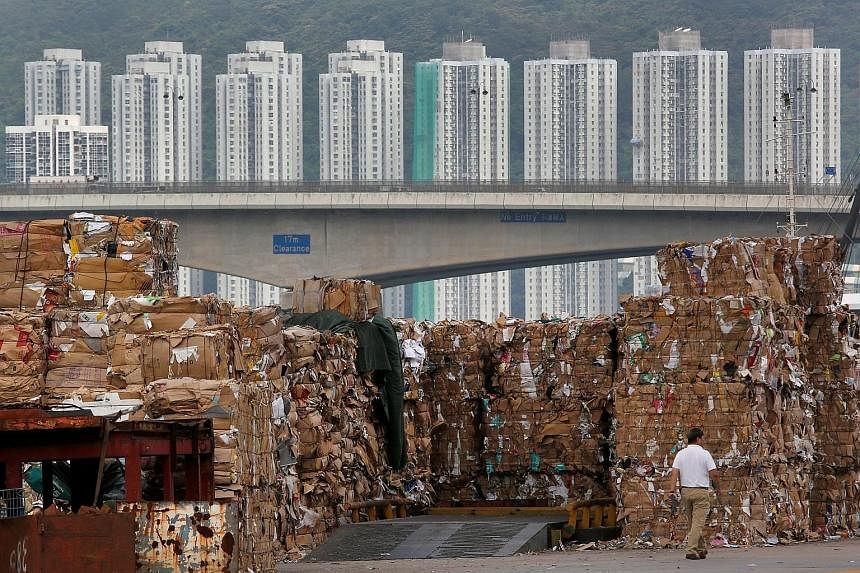HONG KONG • Huge mountains of old newspapers, cardboard and office scrap paper are piling up on Hong Kong's docks and the city's waste-paper collection sites are at bursting point.
A flotilla of cargo ships laden with paper meant for recycling has been stuck for weeks in local waters.
The city's system for dealing with its paper waste has been falling apart since China in July imposed a ban on imports of 24 types of rubbish, as part of a campaign against "foreign garbage" and environmental pollution, including unsorted scrap paper.
Each day in Hong Kong, about 2,500 tonnes of fresh paper waste are piling up with no place to go, according to Mr Jacky Lau, director of Hong Kong's main recycling business association.
"We started our business 50 years ago and we have never experienced such a crisis," he said, adding that the industry is losing HK$2.7 million (S$470,000) daily.
Traditional suppliers of paper waste to China include Europe, the United States, Hong Kong, Japan and South-east Asia, according to industry associations.
While China indicates it will impose an outright ban on mixed paper waste, a final decision is not expected until November.
For now, the authorities have tightened requirements on paper waste to markedly cut back on allowed levels of contaminants.
As a result of the impasse, a major paper mill in southern China said the price of finished paper had doubled to 6,000 yuan (S$1,200) per tonne from 3,000 yuan as supplies of the raw material shrink.
Alibaba's upcoming Singles' Day online shopping festival on Nov 11, which posted more than 120 billion yuan in sales last year, is heavily reliant on such packaging.
One corrugated box retailer on Taobao, Alibaba's online shopping site, said the price of cardboard boxes had nearly doubled since the end of last month to 8.8 yuan each.
Mr Jakob Rindegren, recycling policy adviser of Britain's Environmental Services Association, said the restrictions would ripple beyond China. "Online retailers such as Amazon still need cardboard boxes and most come from China," he said.
Thirty-one billion packages were delivered in China last year, according to online retailer JD.com.
Maersk Line, the world's largest shipper of containers, said it has already seen a drop in waste cargo into China. And in a customer notice on Tuesday, German container shipper Hapag-Lloyd said it would stop accepting cargoes of scrap plastic and paper waste from Europe, the US and Asia that are due to arrive at Chinese ports after Dec 31.
China, the world's largest paper recycler, produced about 63.3 million tonnes of waste paper pulp last year, said the China Paper Association, with about 24 per cent from imported waste paper.
REUTERS

